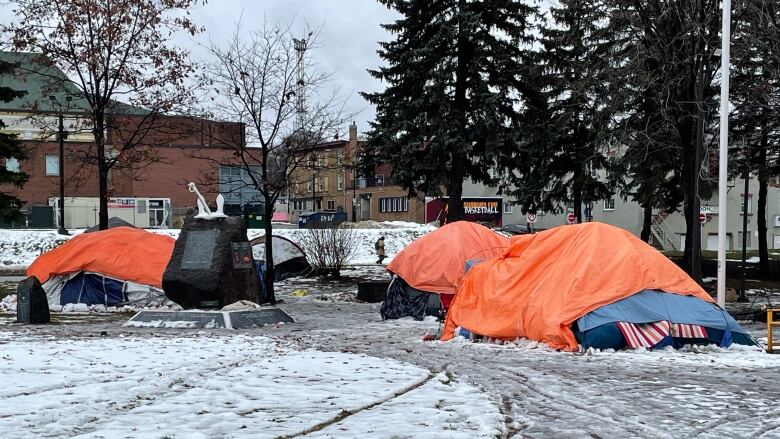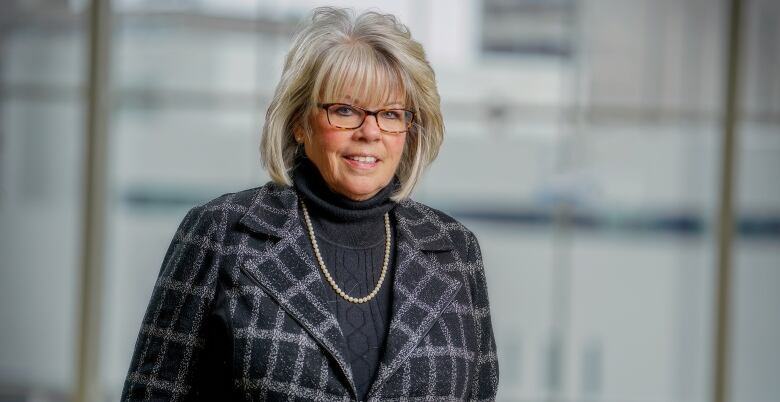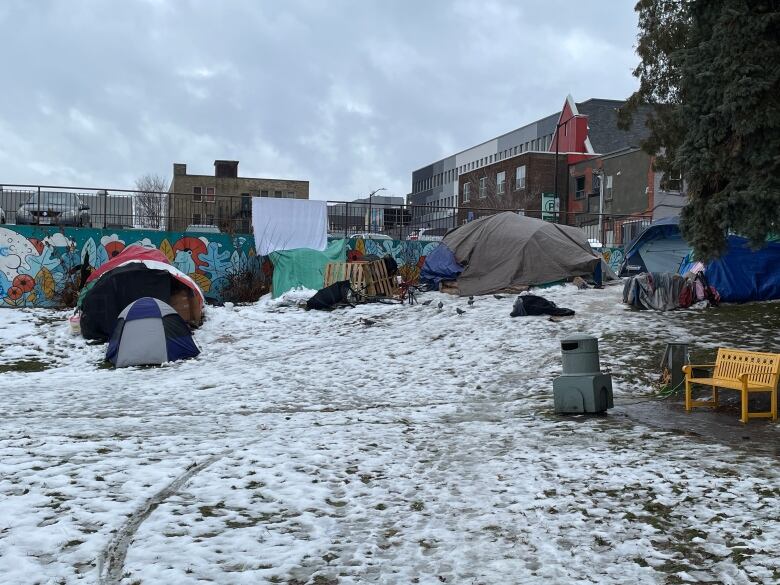Housing a priority as winter approaches, says Sudbury Homelessness Network
The Homelessness Network has helped 23 people access affordable housing in the last 2 months

The city of Greater Sudbury estimates that at least 90 people live in downtown tent encampments.
As temperatures dip, the city's Homelessness Network has focused on keeping those individuals warm, and finding affordable housing for as many as possible.
Raymond Landry, a coordinator with the Homelessness Network, said there could be as many as 130 people living in the tent encampments, butit's difficult to get an accurate head count.
But Landry said numbers are lower today than they were in the summer and fall months.
The Homelessness Network has helped 23 people who lived in the tent encampments find housing in the last two months.
"Through the coordinated access and name prioritization list, some people are finding housing through the support and help of the many agencies that are working with the homeless right now," Landry said.
Landry said it's possible some individuals were able to find housing on their own, and would not be part of that count.
He said by working with the city, organizations like his have been able to move people experiencing absolute homelessness up the priority list for affordable housing.
Some people have also found apartments through private listings, and were able to access housing allowances to move in.
The Homelessness Network's biggest priority, Landry said, is to make more affordable housing units available as fast as possible.
"Of course, there is always a need for more investments in housing, and we hope that with endeavours by the federal government, provincial government and local municipalities, that more of those spaces will be created sooner than later," he said.

Transitional housing
So far, the province has not picked up the tab for planned transitional housing projects in the city, meant to help people recovering from alcohol and drug addiction get back on their feet.
During the 2021 budget deliberations, Sudbury city councillors approved a $2.2 million a year plan, with an $800,000 per year funding commitment. Their hope was that the city would be able to secure provincial funding to cover a significant portion of the operational expenses.
But that funding from the province has not yet arrived.
"Although many, many efforts have been made on behalf of the Mayor and our staff of trying to negotiate and trying to reach out to the provincial government, they have been silent to date," said Coun. Joscelyne Landry-Altmann, who has been working on the project along with Couns. Deb McIntosh and Fern Cormier.

Surviving the winter
Evie Ali, the executive director of the Go-Give Project, said she has been impressed by the steps some people in the tent encampments have taken to stay warm during the winter.
"You will notice that a lot of the encampments might look much bigger right now," she said. That is just due to the number of layers that they've actually built on top of them to kind of keep the heat in."
The Go-Give Project is a Sudbury-based non-profit organization that helps with harm reduction for people in vulnerable situations.
Landry, of the Homelessness Network, said outreach workers have provided sleeping bags, blankets and other camping supplies to help people in the encampments stay warm.
"Some have access to electricity through the city park and have extension cords to plug in various types of heaters," he said.












_(720p).jpg)


 OFFICIAL HD MUSIC VIDEO.jpg)
.jpg)



























































































